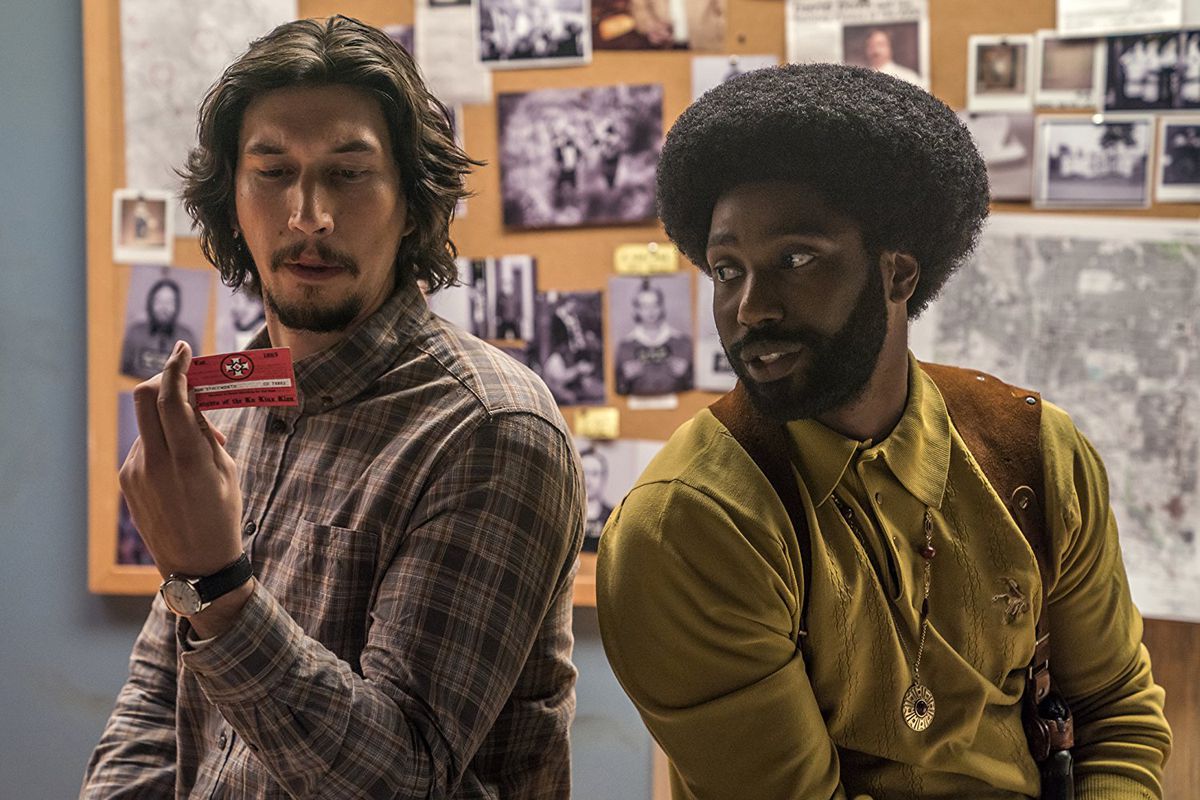Spike Lee’s lates work, BlacKkKlansman invites us to look at the (near) past to better understand our ambiguous present.
Sofia Brugali and Margherita Fontana delight us with two reviews that, as usual, reveal more than what meets the eye.
BlacKkKlansman – as seen by Sofia Brugali
Spike Lee has already debated the issue of race relations and he now goes back to it in his new film, Blackkklansman, from the (almost) homonymous book by Ron Stallworth, in which the writer and ex-police tells us about his life. Through old-fashioned colors and music, the
filmmaker lead us to the United States during the Sixties and more specifically to Colorado Springs: Ron, the first African-American policeman of the city, and his Jew collegue Flip Zimmerman succeed in going undercover inside the local section of the Ku Klux Klan and get to the top of the organization. The story, that sounds like a joke, is dealt with smart comedy and tragic realism: the film is not only an action movie, but it is also and above a constant stream of words, ideals, beliefs. The action is based on the conflict between African-Americans that fight for their rights and white supremacists, in a confrontation which from the past comes to the present, in the past it finds the roots of present: from Wilson to
Trump, history repeats itself.
BlacKkKlansman – as seen by Margherita Fontana
Spike Lee’s latest film merges in a brilliant way a “f*cking true story” and a (cinematographic) imagery, presenting itself since its barely-pronounceable title as a homage to appropriation as a cultural strategy. On the one hand, the film is based on the story told in the recent autobiography by Ron Stallworth: the first black policeman of Colorado Springs in the 70s, he was able to infiltrate the local group of Ku Klux Klan to the point of having edifying phone calls with the national chief of the organisation. On the other side, there is the cinematographic imagery of the ’70s Blaxploitation, the one of Shaft and Superfly. But we could go further: Black Klansman, also known as I Crossed the Color Line is a B movie from 1966 that tells the revenge story of a black man (played by a white actor) whose daughter was killed by the Klan. Through this net of cinematic quotations and re-appropriations (which includes also the most racist film ever made, The Birth of the Nation from 1915 by Griffith), Spike Lee invites the contemporary audience not to underestimate the power of images (and words) in Donald Trump’s era.









Commenti recenti